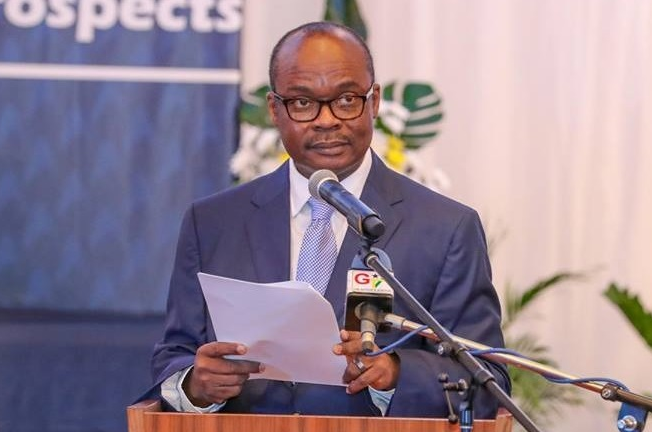Governor of the Bank of Ghana, Dr. Ernest Addison, has said that intensive participation of Small and Medium-scale Enterprises (SMEs) in the digital economy is essential to economic growth, given how large the sector is.
Speaking at the Business Sans Borders (BSB) stakeholder forum held in Accra – an initiative between the Monetary Authority of Singapore (MAS), Bank of Ghana (BoG) and the Ministry of Finance which seeks to develop a network of digital platforms to serve as a global public infrastructure to facilitate cross-border trade – the Governor stressed the role of SMEs in delivering the project’s objectives, as the sector makes up about 90 percent of enterprises in the country.
“One objective of the payment systems reform is to achieve a financially inclusive and economically empowered society. Delivering an economically empowered society hinges on strong SMEs, since they account for close to 90 percent of businesses.
“Therefore, facilitating SMEs’ participation in the digital economy will enhance efficiency, extend market reach, and build their capacity to generate employment opportunities and boost economic growth.
“In addition, the broad-based acceptance of digital payments by SMEs will scale-up products and services deployment, and provide digital footprints for improved credit services by financial service providers,” he said.
Dr. Addison further stated that with full implementation of the BSB initiative, Ghanaian SMEs will be able to access diversified trade opportunities as well as critical, quality ecosystem facilities such as finance, accounting and business referrals with Singapore.
He again disclosed that the Bank of Ghana and Monetary Authority of Singapore are currently creating a Financial Trust Corridor (FTC), which is a dedicated ecosystem for mutual recognition and closer relationships between businesses, including SMEs and financial institutions, on the platform.
“The Trust Corridor will comprise a governance framework and digital infrastructure for banks and FinTech companies in both countries. Participants can then refer to and utilise key information available on the platform for credit assessment – while adhering to domestic and international regulations, including data protection and Anti-Money Laundering requirements. Participating SMEs will have the trust of financial institutions, leading to the much-needed financial sector support for SMEs growth,” he said.
First Deputy Governor of the Bank, Dr. Maxwell Opoku-Afari, emphasised the need for all stakeholders to remain committed to the Business Sans Borders project, as it is a win-win game for all players, including the BoG, SMEs and governments of both countries.
“To the Bank of Ghana, the Business Sans Borders through the Financial Trust Corridor is a game-changer in our efforts to drive financial sector activity and inclusive SME development under the regulatory watch of the central bank.
“To the commercial banks and FinTechs, there is a clear opportunity for rapid growth with new clients – and to leverage data for innovation, as the project also offers a Sandbox environment to accelerate testing and delivery of new services for SMEs. For traders in both Ghana and Singapore, BSB enables a one-stop meta-hub to source for trade and services online while Streamlining access to better domestic and cross-border business opportunities.
“To the larger government of Ghana, the project offers an effective platform toward deepening trade and bilateral cooperation between the Republic of Ghana and Singapore on a scale that has never been seen. Clearly, this is a win-win project. And now that we are fully aware of potential benefits from the project, the real work begins. It is now time to roll up our sleeves and work toward implementation of the project’s various components,” he said.
Source: bftonline.com





